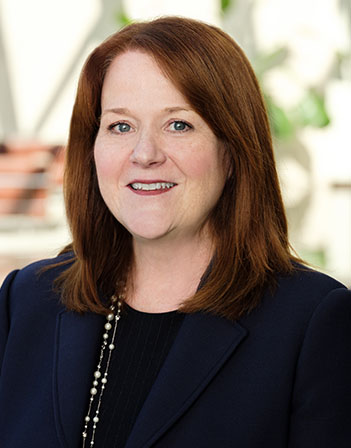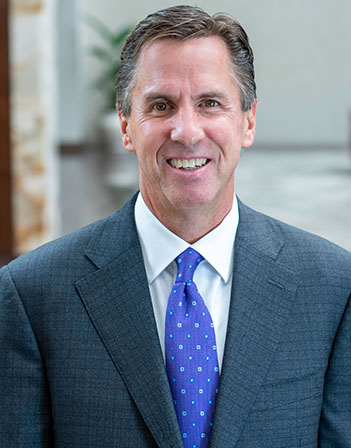
Article
What Can Happen When the Failure to Provide Discovery Crosses the Line? - New Jersey Law Journal
In Dondero v. Abdelhak, MD, No. A-3524-33 (App. Div. Mar. 13, 2025), the New Jersey Appellate Division recognized the costs a party endures when evidence is wrongly concealed and determined those losses were compensable. The Superior Court of New Jersey held that defendants’ failure to produce critical discovery over many years, including denying the discovery even existed, may sustain plaintiffs’ claim for fraudulent concealment, permitting damages caused by the delay of such disclosure, even after the discovery eventually was produced. The court recognized the proper parties to such a claim to include those who participated in the fraudulent concealment, including named defendants and nonparties. Indeed, the court added if one or more litigants acted in concert to wrongfully conceal evidence, a cause of action for civil conspiracy was appropriate. The court’s decision sends an important message to litigants that responses to discovery must be timely, substantive, and fully exchanged with no efforts to fraudulently conceal, obstruct, or delay.
In August 2018, when plaintiff Kristen Dondero was 31 weeks pregnant, she sought care from defendant Dr. Yaakov Abdelhak, a maternal-fetal specialist. On Sept. 6, 2018, Kristen was admitted to defendant Hackensack University Medical Center (HUMC) with early labor symptoms and decreased fetal movement. Defendant Dr. Howell placed her on a fetal monitor for observation, and Dr. Abdelhak conducted a vaginal examination. The plaintiff was discharged with preterm labor precautions and advised to follow up with Dr. Abdelhak. Two days later, she returned to the hospital with complaints of abdominal pain and decreased fetal movement. Work-up revealed plaintiff’s baby had died in utero. Dr. Abdelhak induced labor and attempted to deliver the infant vaginally; however, he had to reposition the infant to accomplish the delivery. Dr. Howell assisted him. Kristen suffered significant postpartum hemorrhaging and required a hysterectomy, blood transfusions, and additional surgeries while in an induced coma. After a difficult recovery, she returned to the hospital in October 2018 and April 2019 for related complications. Her efforts to preserve her remaining eggs and to have a child via surrogacy were unsuccessful.
In June 2020, plaintiffs filed suit alleging defendants, including Dr. Abdelhak and his employers, HUMC and its affiliates, and Dr. Howell and her employer, Hackensack University Medical Group, P.C. (HUMG), were negligent in Kristen’s care, causing injuries to her and the death of plaintiffs’ child. Mr. Dondero also asserted that defendants’ negligence caused him injuries, including loss for consortium and emotional distress.
Discovery followed an extraordinarily tortuous path, including many discovery motions over years and an order in May 2022 striking the answers of defendants HUMC, Dr. Howell, and HUMG for failure to provide discovery. Central to this matter’s journey to the appellate division were discovery responses served by defendant doctors, HUMC, and HUMG, wherein they each repeatedly denied or otherwise asserted no knowledge of reviews, investigations, morbidity and mortality (M&M) conferences, or preparation of reports and/or documents concerning plaintiff’s care. HUMC’s responses were certified by an in-house paralegal, and HUMG’s responses were certified by its director of practice operations.
In September of 2022, HUMC served amended interrogatories disclosing that there had been a review of plaintiff’s care. Following this disclosure, plaintiffs’ counsel undertook several depositions, including those of HUMC’s paralegal, HUMG’s director, and HUMC’s risk manager. The paralegal testified her answers to interrogatories were assembled by in-house counsel. Defendant HUMG’s director testified his discovery responses were prepopulated, and he did nothing more than to confer with HUMC’s paralegal, who he assumed had access to all pertinent documentation needed to provide the responses. In January 2023, counsel for HUMC and HUMG advised plaintiffs’ counsel they were in possession of 50 pages of documents, including the sign-in sheet for an M&M meeting held on Sept. 21, 2018, which defendants had not disclosed previously. Even more astounding, the documents revealed Dr. Howell served as a preceptor at the M&M conference, and Dr. Abdelhak was in attendance.
In March 2023, HUMC’s risk manager testified she was unaware of any reviews conducted by HUMC or by the Patient Safety Committee, of which she was a member. Conversely, HUMC’s in-house attorney testified she believed there was a preliminary Patient Safety Committee review. Additionally, counsel testified when she reviewed discovery requests in the summer of 2022, a doctor disclosed to her that he thought some sort of review had been conducted. She then asked HUMC’s paralegal to follow up on this issue with the obstetrics department. In the fall of 2022, she confirmed that a quality review and an M&M review had taken place and amended HUMC’s discovery responses accordingly.
In April 2023, plaintiffs were granted leave to file an amended complaint asserting a count of fraudulent concealment against defendant doctors and HUMC. In May 2023, plaintiffs sought leave to amend their complaint to assert a claim of fraud against not only the named defendants, but also the individuals who certified discovery responses. In September 2023, the court appointed a special discovery adjudicator (SDA) who, in December 2023, denied plaintiffs’ applications.
Plaintiffs objected to the SDA’s ruling, and in January 2024, sought leave to amend their complaint to, inter alia, add a count for fraudulent concealment against various defendants as well as HUMC’s paralegal and in-house counsel and HUMG’s Director, assert a claim for legal fraud against these defendants, and set forth a claim for civil conspiracy against HUMC, HUMC’s paralegal and in-house counsel, HUMG, and its director. The trial court denied the motion, finding plaintiffs had not provided “a scintilla of evidence” that any inaccuracy in discovery was part of a conspiracy to defraud plaintiffs. Further, the trial judge reconsidered an earlier decision to allow plaintiffs’ fraudulent concealment claim. Plaintiffs sought leave to appeal from this interlocutory order, which was granted.
In a lengthy opinion, the appellate division concluded that the lower court properly denied plaintiffs’ motion to add a count of legal fraud as they failed to show that defendants knew of the falsity of their representations when they produced or failed to produce discovery. However, the court reached a different conclusion with respect to the denial of plaintiffs’ request to plead fraudulent concealment.
The appellate division enumerated the elements for fraudulent concealment and found the facts pled by plaintiffs were sufficient to proceed. First, plaintiffs had indisputably established that the defendants had a legal obligation to disclose evidence, such evidence was material to the litigation, and plaintiff could not reasonably have obtained access to the evidence from another source. Second, while acknowledging plaintiffs may not ultimately prove that defendants intentionally withheld, altered, or destroyed evidence with the purpose of disrupting the lawsuit, the court noted, at the pleading stage, that it was required to liberally view plaintiffs’ allegations and accept them as true. The court pointed to defendants’ continued denials that there had not been any internal reviews concerning plaintiff’s care, with some denials continuing even after HUMC’s subsequent discovery revealed that a M&M review had been conducted and the defendant doctors had been in attendance, as the strongest factual support for this element.
Finally, the court found plaintiffs could show they sustained damages as a result of the evidence concealed by defendants. Because the withheld evidence impacted the plaintiffs’ case, the fact that defendants ultimately located and produced some evidence would not serve to bar plaintiffs’ claim. Moreover, the court found the damages recoverable for the years long delay reasonably included not only the potential loss of witnesses or fading witness memory and excessive litigation costs, but also the human cost of emotional distress suffered by the litigants.
Not only did the court permit plaintiffs to amend their complaint to add a count for fraudulent concealment against Dr. Howell, Dr. Abdelhak, and their employers, but it also allowed the claim to apply to HUMC’s paralegal and in-house counsel, both of whom were involved in discovery exchanges in which the existence of reviews and investigations were misrepresented. Similarly, the court ruled the motion judge should have permitted a claim for civil conspiracy to proceed against HUMC and its agents as they could have conspired to withhold information pertaining to internal reviews.
The appellate division’s holding makes clear that purposeful efforts to prevent, obstruct, or delay discovery may subject litigants to claims for damages. It also serves as a caution to all litigants, including risk managers, paralegals, and in-house counsel, to respond to discovery requests with due diligence and to disclose even evidence that may be harmful to their interests but is rightly discoverable. Finally, the court’s holding is likely to expedite the resolution of legitimate claims, saving both parties and courts time and expense.
Reprinted with permission from the May 19, 2025 edition of the New Jersey Law Journal © 2025 ALM Global Properties, LLC. All rights reserved. Further duplication without permission is prohibited, contact 877-256-2472 or asset-and-logo-licensing@alm.com.


